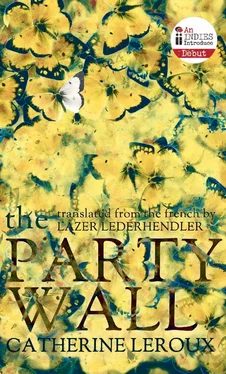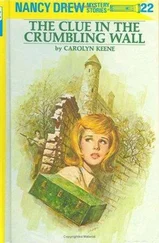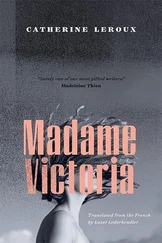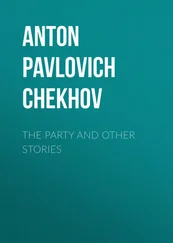She stood up, walked over to a table littered with empty glasses, and poured herself a purple liquid.
“Antioxidant?” she offered.
Ariel shook his head. Her lips moistened with purple juice made her look like a vampire.
“We’re leaving tomorrow, Marie and I. Oddly enough, you’re the only person I wanted to see before going.”
“I’m flattered.”
“Don’t jump to conclusions. I’ve come to call you to account.”
Swinging her endless mane of hair, Emmanuelle turned her back to Ariel and stepped toward a window. Hochelaga — the livid reptile, the many-headed snake — uncoiled at her feet. Montreal had already begun to fade in Ariel’s mind, like the world of Peter Pan, its outline dissolving as one stops believing in it. Emmanuelle kept silent; Ariel pressed the point.
“You couldn’t stand having to share Marc? To see him devote himself to a cause bigger than you?”
“You all think I’m so jealous and possessive. You just don’t get it.”
Setting her glass down on an empty pedestal, she approached Ariel with measured steps.
“It was an artistic gesture, Ariel. That’s all. When I learned you were brother and sister, I immediately grasped the beauty of your story. The grace of loving striving to reconstitute itself by any means, like water cutting a path through solid rock.”
“How poetic. Couldn’t you have just kept your metaphors to yourself?”
“I wanted to create an event. Today’s art resides precisely in such performances. Reality and the actions that disfigure it. To place one’s finger on an object teetering on the edge of the abyss. Delivering that message was so easy, a flick of the finger, really. And the face of the country was changed.”
“For the worse.”
“It’s inappropriate to assign a moral label to this work.”
Ariel exploded.
“Stop talking about it like a piece of art,” he bellowed. “You’ve ruined our lives!”
He would have liked to slap her, to point the mouth of a giant canon at her skinny body and blast a hole through it, and then blow up her appalling sculptures one by one. Unimpressed by Ariel’s rage, Emmanuelle gave him a smug half-smile.
“No, your lives were already ruined. I gave you a chance to live as you choose. If the secret had stayed hidden, you would have spent the rest of your miserable existence loving each other secretly, repressing that love. But now you are going away together. What will you do? Disappear? Change your identities? You’ll grow old side by side. It’s more than you could have dreamed of if you had hung on to your position as prime minister.”
An ominous grating sound went out from the far end of the loft, and as if by magic one of the more substantial mobiles overhanging the loft came loose. It twisted in mid-air before crashing down on the cement floor in a metallic clang and a shower of sparks. Emmanuelle took a few steps toward the mobile and stopped short, perplexed, as though wondering what was left of her piece. When she turned to come back to Ariel he was already gone.
No agriculture worthy of the name has existed on the plains for the past ten years. People still sow seeds and keep little kitchen gardens as a matter of form, but autumn usually yields just a few shrivelled potatoes, peas as hard as gravel, and ghosts of tomatoes. The proudest — or richest — farmers equipped their operations with complex irrigation systems only to throw in the towel a few years later, as exhausted as their fields. These days, the towns just barely scrape by with populations that skim over the topography more than they inhabit it. The places where ancient traditions connected people to the land have become transient landscapes that remind Ariel of American desert towns where nothing ever seems to put down roots.
This means stores with boarded-up windows. Hospitals shut down and doctors you need to drive for hours to see. Families that leave without bothering to sell their now worthless properties. People without work, and dreams either crushed or forgotten in a corner. Only the military base keeps on providing employment and sustenance to a part of the town, which nevertheless continues to empty as steadily as an hourglass.
One winter morning, the daily routine on the plain is upset by a rumour. While people are prepping for another year of exasperating extremes, the word goes out that a biomass conversion plant may be built in Rockfield. This fast-growing industry is apparently looking for a central location where it could process all of the province’s waste.
Though impossible to confirm, the rumour races through the military base, the school, the shopping mall and the church — the cardinal points of the town’s social life.
This is the moment when something that was slumbering in Ariel awakes. His sense of community, his instinct for crowds. His urge to hold the reins. The electronic devices in the house gradually come to life again; the news rings out every hour in the kitchen, research files linger on the computer. Ariel comes back into the world.
Together with two other residents, he organizes a public meeting to which he invites industry spokespeople. Taking on the impromptu role of moderator, he welcomes them on behalf of the people of Rockfield, gives them an overview of the community, and questions them. Then, after getting hold of documents specifying the conditions that need to be met for the plant to be built, he sets up a citizens committee to ensure that the city fulfills every condition. Locations must be proposed, road repairs demanded, water drainage problems solved. The town’s elected officers, delighted by this unhoped-for help, encourage these initiatives. Soon, volunteer work is being organized on a colossal scale in an atmosphere of contagious enthusiasm. A handful of townspeople travel to Regina to petition for their cause and ask for investments. After a few weeks, the entire town is mobilizing around a single objective: to revive a moribund region.
From day to day, Ariel grows more effervescent, more radiant. His best efforts to preserve the extra weight that serves as his disguise are unsuccessful. The excitement melts away the kilos. His voice regains its previous timbre. He is vibrant. And increasingly recognizable despite his altered face. With every passing day his beard looks more and more like a ridiculous postiche on the face of the man who seduced the nation; Marie is afraid to see him unmasked yet cannot bring herself to clip his wings. She would prefer to start her life over again a hundred times rather than confine the man she loves to the desolate trance of exile. There is no taking the Ariel out of Ariel. No matter how many pseudonyms are affixed to him, he remains the one who leads. He will always find a mission, even in the midst of nothing.
Little by little the house fills up. Meetings are held there, neighbours stop by to leave cookies or a spray of flowers, borrow books or just chat. Out of shyness and a wish to protect the little privacy that belonged to her, Marie had jealously kept the doors of their former home shut, thus depriving herself of the joys she is now discovering — a kitchen full of friends, loud voices, shoes heaped up in the hallway, and the kind of solidarity that people at the top are not entitled to. Children roll around in the cruddy snow of their yard. A neighbour shares the fish she caught under the ice. The local lush comes to drain their bottles and spin a few yarns. Quite unexpectedly, life is rekindled.
Oddly enough, Ariel has trouble sleeping not when he is distraught but when he feels hopeful again. His intense involvement in the community not only mitigates his grief at having lost his place among the governing elite, but also brings him solace for his political disillusionment. His new project keeps him up late into the night; it is a vital hub foiling his regrets. As the long wakeful hours tick past, he misses his cat Wretch. He pores over the international magazines and watches the daily news reports to the point of nausea. When his head is too full of the noise of the world, he turns to more rustic occupations. He reads novels, discovers old records abandoned by the former residents, cleans the attic, does a few bodybuilding exercises. Then, in the depths of the night, he drifts toward Marie.
Читать дальше











